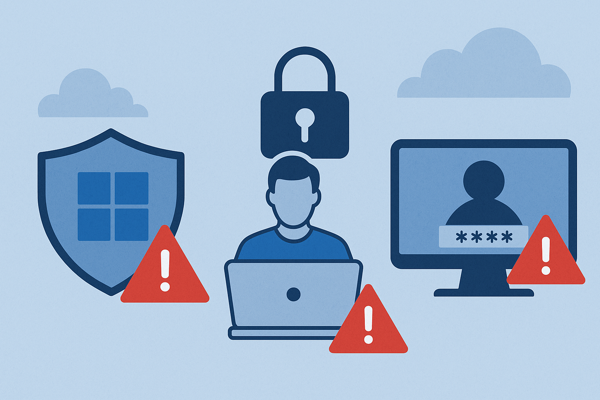Organizations can no longer rely solely on traditional security measures. The increasing frequency and sophistication of cyberattacks underscore the urgent need for more robust defensive strategies. This is where Zero Trust Architecture emerges as a game-changing approach to cybersecurity, fundamentally challenging conventional perimeter-based defenses by asserting that no user or system should be automatically trusted.

Zero Trust Architecture is predicated on core principles that deviate from outdated assumptions about network safety. It emphasizes meticulous verification and stringent controls, rendering it indispensable in the realm of contemporary cybersecurity. By comprehensively understanding and effectively implementing its principles, organizations can safeguard their most critical data and assets against a spectrum of sophisticated threats.
This article delves into essential steps and best practices for adopting a Zero Trust Architecture. From defining the protected surface to instituting strict access policies and integrating cutting-edge technologies, we offer guidance on constructing a resilient security framework. Discover how to navigate implementation challenges, align security initiatives with business objectives, and ensure your team is continually educated to uphold robust protection in an ever-evolving digital environment.
Understanding Zero Trust Architecture
Zero Trust Architecture is rapidly emerging as a cornerstone of modern cybersecurity strategies, critical for safeguarding sensitive data and resources. This comprehensive security framework challenges traditional models by assuming that every user, device, and network interaction is potentially harmful, regardless of whether it originates internally or externally. At the heart of Zero Trust is the principle of “never trust, always verify,” enforcing stringent authentication and authorization at every access point. By doing so, it reduces the attack surface, minimizing the likelihood and impact of security breaches. Zero Trust Architecture involves implementing rigorous policies such as least-privileged access and continuous monitoring, thus ensuring that even if a breach occurs, it is contained and managed effectively. Through strategic actions such as network segmentation and verification of each transaction, organizations can adapt to ever-evolving cybersecurity threats with agility and precision.
Definition and Core Principles
Zero Trust Architecture represents a significant shift from conventional security paradigms by adopting a stance where no entity is trusted by default. This framework is anchored on stringent authentication requirements for every access request, treating each as though it stems from an untrusted network, regardless of its origin. Unlike traditional security models that often assume the safety of internal networks, Zero Trust mandates persistent verification and aligns access privileges tightly with the user’s role. Continuous monitoring and policy enforcement are central to maintaining the integrity of the network environment, ensuring every interaction abides by established security protocols. Ultimately, by sharply reducing assumptions of trust and mitigating implicit vulnerabilities, Zero Trust helps in creating a robust security posture that limits exposure and enables proactive defense measures against potential threats.
Importance in Modern Cybersecurity
The Zero Trust approach is increasingly essential in today’s cybersecurity landscape due to the rise of sophisticated and nuanced cyber threats. It redefines how organizations secure resources, moving away from reliance on perimeter-based defenses which can be exploited within trusted networks. Zero Trust strengthens security by demanding rigorous validation of user and device credentials continuously, thereby enhancing the organization’s defensive measures. Implementing such a model supports a data-centric approach, emphasizing precise, granular access controls that prevent unauthorized access and lateral movement within the network. By focusing on least-privileged access, Zero Trust minimizes the attack surface and fortifies the organization against breaches. In essence, Zero Trust transforms potential weaknesses into manageable risks, offering an agile, effective response to the complex challenges of modern cybersecurity threats.
Defining the Protected Surface
Defining the protected surface is the cornerstone of implementing a Zero Trust architecture. This initial step focuses on identifying and safeguarding the organization’s most critical data, applications, and services. The protected surface comprises the elements that, if compromised, would cause significant harm to the business. By pinpointing these essential assets, organizations can concentrate their security efforts where it matters most, rather than spreading resources ineffectively across the entire network. This approach allows for the application of stringent security measures on the most crucial assets, ensuring robust protection against potential threats. For instance, in sectors like healthcare, the protected surface might include sensitive patient records, while in a financial firm, it could involve transactional data and client information.
Identifying Critical Data and Assets
Implementing a Zero Trust model begins with a thorough assessment of an organization’s most critical assets, which together form the protected surface. This surface includes data, applications, and services crucial to business operations. Identifying and categorizing these assets is vital, as it helps determine what needs the highest level of security. The specifics of a protected surface vary across industries and business models, but all share the common thread of protecting vital organizational functions. Understanding where important data resides and how it is accessed allows for effective network segmentation based on sensitivity and access requirements. For example, mapping out data flows within a network is crucial to understanding asset interactions and pinpointing areas needing heightened security, thus facilitating the effective establishment of a Zero Trust architecture.
Understanding Threat Vectors
A comprehensive understanding of potential threat vectors is essential when implementing a Zero Trust model. Threat vectors are essentially pathways or means that adversaries exploit to gain unauthorized access to an organization’s assets. In a Zero Trust environment, every access attempt is scrutinized, and trust is never assumed, reducing the risk of lateral movement within a network. By thoroughly analyzing how threats could possibly penetrate the system, organizations can implement more robust defensive measures. Identifying and understanding these vectors enable the creation of trust policies that ensure only authorized access to resources. The knowledge of possible threat landscapes allows organizations to deploy targeted security tools and solutions, reinforcing defenses against even the most sophisticated potential threats, thereby enhancing the overall security posture of the entire organization.
Architecting the Network
When architecting a zero trust network, it’s essential to integrate a security-first mindset into the heart of your infrastructure. Zero trust architecture focuses on the principle of “never trust, always verify,” ensuring that all access requests within the network undergo rigorous scrutiny. This approach begins with mapping the protect surface and understanding transaction flows within the enterprise to effectively segment and safeguard critical assets. It requires designing isolated zones across the network, each fortified with granular access controls and continuous monitoring. Embedding secure remote access mechanisms such as multi-factor authentication across the entire organization is crucial, ensuring every access attempt is confirmed based on user identity and current context. Moreover, the network design should remain agile, anticipating future technological advancements and business model changes to maintain robust security in an evolving threat landscape.
Implementing Micro-Segmentation
Implementing micro-segmentation is a crucial step in reinforcing a zero trust architecture. This technique involves dividing the network into secure zones around individual workloads or applications, allowing for precise access controls. By doing so, micro-segmentation effectively limits lateral movement within networks, which is a common vector for unauthorized access and data breaches. This containment strategy isolates workloads and applications, reducing the risk of potential threats spreading across the network. Each segment can enforce strict access controls tailored to user roles, application needs, or the sensitivity of the data involved, thus minimizing unnecessary transmission paths that could lead to sensitive information. Successful micro-segmentation often requires leveraging various security tools, such as identity-aware proxies and software-defined perimeter solutions, to ensure each segment operates optimally and securely. This layered approach not only fortifies the network but also aligns with a trust security model aimed at protecting valuable resources from within.
Ensuring Network Visibility
Ensuring comprehensive network visibility is fundamental to the success of a zero trust implementation. This aspect involves continuously monitoring network traffic and user behavior to swiftly identify and respond to suspicious activity. By maintaining clear visibility, security teams can ensure that all network interactions are legitimate and conform to the established trust policy. Integrating advanced monitoring tools and analytics can aid in detecting anomalies that may indicate potential threats or breaches. It’s crucial for organizations to maintain an up-to-date inventory of all network assets, including mobile devices, to have a complete view of the network environment. This comprehensive oversight enables swift identification of unauthorized access attempts and facilitates immediate remedial actions. By embedding visibility as a core component of network architecture, organizations can ensure their trust solutions effectively mitigate risks while balancing security requirements with the user experience.
Establishing Access Policies
In the framework of a zero trust architecture, establishing access policies is a foundational step to secure critical resources effectively. These policies are defined based on the principle of least privilege, dictating who can access specific resources and under what conditions. This approach reduces potential threats by ensuring that users have only the permissions necessary to perform their roles. Access policies must consider various factors, including user identity, role, device type, and ownership. The policies should be detailed through methodologies such as the Kipling Method, which strategically evaluates each access request by asking comprehensive questions like who, what, when, where, why, and how. This granular approach empowers organizations to enforce per-request authorization decisions, thereby preventing unauthorized access to sensitive data and services. By effectively monitoring access activities, organizations can swiftly detect any irregularities and continuously refine their access policies to maintain a robust security posture.
Continuous Authentication
Continuous authentication is a critical component of the zero trust model, ensuring rigorous verification of user identity and access requests at every interaction. Unlike traditional security models that might rely on periodic checks, continuous authentication operates under the principle of “never trust, always verify.” Multi-factor authentication (MFA) is a central element of this process, requiring users to provide multiple credentials before granting access, thereby significantly diminishing the likelihood of unauthorized access. This constant assessment not only secures each access attempt but also enforces least-privilege access controls. By using contextual information such as user identity and device security, zero trust continuously assesses the legitimacy of access requests, thus enhancing the overall security framework.
Applying Least Privilege Access
The application of least privilege access is a cornerstone of zero trust architecture, aimed at minimizing security breaches through precise permission management. By design, least privilege provides users with just-enough access to perform necessary functions while restricting exposure to sensitive data. According to NIST, this involves real-time configurations and policy adaptations to ensure that permissions are as limited as possible. Implementing models like just-in-time access further restricts permissions dynamically, granting users temporary access only when required. This detailed approach necessitates careful allocation of permissions, specifying actions users can perform, such as reading or modifying files, thereby reducing the risk of lateral movement within the network.
Utilizing Secure Access Service Edge (SASE)
Secure Access Service Edge (SASE) is an integral part of modern zero trust architectures, combining network and security capabilities into a unified, cloud-native service. By facilitating microsegmentation, SASE enhances identity management and containment strategies, strengthening the organization’s overall security posture. It plays a significant role in securely connecting to cloud resources and seamlessly integrating with legacy infrastructure within a zero trust strategy. Deploying SASE simplifies and centralizes the management of security services, providing better control over the network. This enables dynamic, granular access controls aligned with specific security policies and organizational needs, supporting the secure management of access requests across the entire organization.
Technology and Tools
Implementing a Zero Trust architecture necessitates a robust suite of security tools and platforms, tailored to effectively incorporate its principles across an organization. At the heart of this technology stack is identity and access management (IAM), crucial for authenticating users and ensuring access is consistently secured. Unified endpoint management (UEM) plays a pivotal role in this architecture by enabling the discovery, monitoring, and securing of devices within the network. Equally important are micro-segmentation and software-defined perimeter (SDP) tools, which isolate workloads and enforce strict access controls. These components work together to support dynamic, context-aware access decisions based on real-time data, risk assessments, and evolving user roles and device states. The ultimate success of a Zero Trust implementation hinges on aligning the appropriate technologies to enforce rigorous security policies and minimize potential attack surfaces, thereby fortifying the organizational security posture.
Role of Multi-Factor Authentication (MFA)
Multi-Factor Authentication (MFA) is a cornerstone of the Zero Trust model, instrumental in enhancing security by requiring users to present multiple verification factors. Unlike systems that rely solely on passwords, MFA demands an additional layer of verification, such as security tokens or biometric data, making it significantly challenging for unauthorized users to gain access. This serves as a robust identity verification method, aligning with the Zero Trust principle of “never trust, always verify” and ensuring that every access attempt is rigorously authenticated. Within a Zero Trust framework, MFA continuously validates user identities both inside and outside an organization’s network. This perpetual verification cycle is crucial for mitigating the risk of unauthorized access and safeguarding sensitive resources, regardless of the network’s perimeter.
Integrating Zero Trust Network Access (ZTNA)
Integrating Zero Trust Network Access (ZTNA) revolves around establishing secure remote access and implementing stringent security measures like multi-factor authentication. ZTNA continuously validates both the authenticity and privileges of users and devices, irrespective of their location or network context, fostering robust security independence from conventional network boundaries. To effectively configure ZTNA, organizations must employ network access control systems aimed at monitoring and managing network access and activities, ensuring a consistent enforcement of security policies.
ZTNA also necessitates network segmentation, enabling the protection of distinct network zones and fostering the creation of specific access policies. This segmentation is integral to limiting the potential for lateral movement within the network, thereby constraining any potential threats that manage to penetrate initial defenses. Additionally, ZTNA supports the principle of least-privilege access, ensuring all access requests are carefully authenticated, authorized, and encrypted before granting resource access. This meticulous approach to managing access requests and safeguarding resources fortifies security and enhances user experience across the entire organization.
Monitoring and Maintaining the System
In the realm of Zero Trust implementation, monitoring and maintaining the system continuously is paramount to ensuring robust security. Central to this architecture is the concept that no user or device is inherently trusted, establishing a framework that requires constant vigilance. This involves repetitive authentication and authorization for all entities wishing to access network resources, thereby safeguarding against unauthorized access attempts. Granular access controls and constant monitoring at every network boundary fortify defenses by disrupting potential breaches before they escalate. Furthermore, micro-segmentation within the Zero Trust architecture plays a critical role by isolating network segments, thereby curbing lateral movement and containing any security breaches. By reinforcing stringent access policies and maintaining consistency in authentication processes, organizations uphold a Zero Trust environment that adapts to the constantly evolving threat landscape.
Ongoing Security Assessments
Zero Trust architecture thrives on continuous validation, making ongoing security assessments indispensable. These assessments ensure consistent authentication and authorization processes remain intact, offering a robust defense against evolving threats. In implementing the principle of least privilege, Zero Trust restricts access rights to the minimum necessary, adjusting permissions as roles and threat dynamics change. This necessitates regular security evaluations to adapt seamlessly to these changes. Reducing the attack surface is a core objective of Zero Trust, necessitating persistent assessments to uncover and mitigate potential vulnerabilities proactively. By integrating continuous monitoring, organizations maintain a vigilant stance, promptly identifying unauthorized access attempts and minimizing security risks. Through these measures, ongoing security assessments become a pivotal part of a resilient Zero Trust framework.
Dynamic Threat Response
Dynamic threat response is a key strength of Zero Trust architecture, designed to address potential threats both internal and external to the organization swiftly. By enforcing short-interval authentication and least-privilege authorization, Zero Trust ensures that responses to threats are agile and effective. This approach strengthens the security posture against dynamic threats by requiring constant authentication checks paired with robust authorization protocols. Real-time risk assessment forms the backbone of this proactive threat response strategy, enabling organizations to remain responsive to ever-changing threat landscapes. Additionally, the Zero Trust model operates under the assumption of a breach, leading to mandatory verification for every access request—whether it comes from inside or outside the network. This inherently dynamic system mandates continuous vigilance and nimble responses, enabling organizations to tackle modern security challenges with confidence and resilience.
Challenges in Implementing Zero Trust
Implementing a Zero Trust framework poses several challenges, particularly in light of modern technological advancements such as the rise in remote work, the proliferation of IoT devices, and the increased adoption of cloud services. These trends can make the transition to Zero Trust overwhelming for many organizations. Common obstacles include the perceived complexity of restructuring existing infrastructure, the cost associated with necessary network security tools, and the challenge of ensuring user adoption. To navigate these hurdles effectively, clear communication between IT teams, change managers, and employees is essential. It is also crucial for departments such as IT, Security, HR, and Executive Management to maintain continuous cross-collaboration to uphold a robust security posture. Additionally, the Zero Trust model demands a detailed identification of critical assets, paired with enforced, granular access controls to prevent unauthorized access and minimize the impact of potential breaches.
Identity and Access Management (IAM) Complexity
One of the fundamental components of Zero Trust is the ongoing authentication and authorization of all entities seeking access to network resources. This requires a meticulous approach to Identity and Access Management (IAM). In a Zero Trust framework, identity verification ensures that only authenticated users can gain access to resources. Among the core principles is the enforcement of the least privilege approach, which grants users only the permissions necessary for their roles. This continuous verification approach is designed to treat all network components as potential threats, necessitating strict access controls. Access decisions are made based on a comprehensive evaluation of user identity, location, and device security posture. Such rigorous policy checks are pivotal in maintaining the integrity and security of organizational assets.
Device Diversity and Compatibility
While the foundational tenets of Zero Trust are pivotal to its implementation, an often overlooked challenge is device diversity and compatibility. The varied landscape of devices accessing organizational resources complicates the execution of uniform security policies. Each device, whether it’s a mobile phone, laptop, or IoT gadget, presents unique security challenges and compatibility issues. Ensuring that all devices—from the newest smartphone to older, less secure equipment—align with the Zero Trust model requires detailed planning and adaptive solutions. Organizations must balance the nuances of device management with consistent application of security protocols, often demanding tailored strategies and cutting-edge security tools to maintain a secure environment.
Integration of Legacy Systems
Incorporating legacy systems into a Zero Trust architecture presents a substantial challenge, primarily due to their lack of modern security features. Many legacy applications do not support the fine-grained access controls required by a Zero Trust environment, making it difficult to enforce modern security protocols. The process of retrofitting these systems to align with Zero Trust principles can be both complex and time-intensive. However, it remains a critical step, as these systems often contain vital data and functionalities crucial to the organization. A comprehensive Zero Trust model must accommodate the security needs of these legacy systems while integrating them seamlessly with contemporary infrastructure. This task requires innovative solutions to ensure that even the most traditional elements of an organization’s IT landscape can protect against evolving security threats.
Best Practices for Implementation
Implementing a Zero Trust architecture begins with a comprehensive approach that emphasizes the principle of least privilege and thorough policy checks for each access request. This security model assumes no inherent trust for users or devices, demanding strict authentication processes to prevent unauthorized access. A structured, five-step strategy guides organizations through asset identification, transaction mapping, architectural design, implementation, and ongoing maintenance. By leveraging established industry frameworks like the NIST Zero Trust Architecture publication, organizations ensure adherence to best practices and regulatory compliance. A crucial aspect of implementing this trust model is assessing the entire organization’s IT ecosystem, which includes evaluating identity management, device security, and network architecture. Such assessment helps in defining the protect surface—critical assets vital for business operations. Collaboration across various departments, including IT, Security, HR, and Executive Management, is vital to successfully implement and sustain a Zero Trust security posture. This approach ensures adaptability to evolving threats and technologies, reinforcing the organization’s security architecture.
Aligning Security with Business Objectives
To effectively implement Zero Trust, organizations must align their security strategies with business objectives. This alignment requires balancing stringent security measures with productivity needs, ensuring that policies consider the unique functions of various business operations. Strong collaboration between departments—such as IT, security, and business units—is essential to guarantee that Zero Trust measures support business goals. By starting with a focused pilot project, organizations can validate their Zero Trust approach and ensure it aligns with their broader objectives while building organizational momentum. Regular audits and compliance checks are imperative for maintaining this alignment, ensuring that practices remain supportive of business aims. Additionally, fostering cross-functional communication and knowledge sharing helps overcome challenges and strengthens the alignment of security with business strategies in a Zero Trust environment.
Starting Small and Scaling Gradually
Starting a Zero Trust Architecture involves initially identifying and prioritizing critical assets that need protection. This approach recommends beginning with a specific, manageable component of the organization’s architecture and progressively scaling up. Mapping and verifying transaction flows is a crucial first step before incrementally designing the trust architecture. Following a step-by-step, scalable framework such as the Palo Alto Networks Zero Trust Framework can provide immense benefits. It allows organizations to enforce fine-grained security controls gradually, adjusting these controls according to evolving security requirements. By doing so, organizations can effectively enhance their security posture while maintaining flexibility and scalability throughout the implementation process.
Leveraging Automation
Automation plays a pivotal role in implementing Zero Trust architectures, especially in large and complex environments. By streamlining processes such as device enrollment, policy enforcement, and incident response, automation assists in scaling security measures effectively. Through consistent and automated security practices, organizations can minimize potential vulnerabilities across their networks. Automation also alleviates the operational burden on security teams, allowing them to focus on more intricate security challenges. In zero trust environments, automated tools and workflows enhance efficiency while maintaining stringent controls, supporting strong defenses against unauthorized access. Furthermore, integrating automation into Zero Trust strategies facilitates continuous monitoring and vigilance, enabling quick detection and response to potential threats. This harmonization of automation with Zero Trust ensures robust security while optimizing resources and maintaining a high level of protection.
Educating and Communicating the Strategy
Implementing a Zero Trust architecture within an organization is a multifaceted endeavor that necessitates clear communication and educational efforts across various departments, including IT, Security, HR, and Executive Management. The move to a Zero Trust model is driven by the increasing complexity of potential threats and the limitations of traditional security models in a world with widespread remote work, cloud services, and mobile devices. Understanding and properly communicating the principles of Zero Trust—particularly the idea of “never trust, always verify”—is critical to its successful implementation. Proper communication ensures that every member of the organization is aware of the importance of continuously validating users and devices, as well as the ongoing adaptation required to keep pace with evolving security threats and new technologies.
Continuous Training for Staff
Continuous training plays a pivotal role in the successful implementation of Zero Trust security practices. By providing regular security awareness training, organizations ensure their personnel are equipped with the knowledge necessary to navigate the complexities of Zero Trust architecture. This training should be initiated during onboarding and reinforced periodically throughout the year. Embedding such practices ensures that employees consistently approach all user transactions with the necessary caution, significantly reducing risks associated with unauthorized access.
Security training must emphasize the principles and best practices of Zero Trust, underscoring the role each employee plays in maintaining a robust security posture. By adopting a mindset of least privilege access, employees can contribute to minimizing lateral movement opportunities within the organization. Regularly updated training sessions prepare staff to respond more effectively to security incidents, enhancing overall incident response strategies through improved preparedness and understanding.
Facilitating ongoing training empowers employees and strengthens the organization’s entire security framework. By promoting awareness and understanding, these educational efforts support a culture of security that extends beyond IT and security teams, involving every employee in safeguarding the organization’s critical resources. Continuous training is essential not only for compliance but also for fostering an environment where security practices are second nature for all stakeholders.
More Information and Getting Help from MicroSolved, Inc.
Implementing a Zero Trust architecture can be challenging, but you don’t have to navigate it alone. MicroSolved, Inc. (MSI) is prepared to assist you at every step of your journey toward achieving a secure and resilient cybersecurity posture. Our team of experts offers comprehensive guidance, meticulously tailored to your unique organizational needs, ensuring your transition to Zero Trust is both seamless and effective.
Whether you’re initiating a Zero Trust strategy or enhancing an existing framework, MSI provides a suite of services designed to strengthen your security measures. From conducting thorough risk assessments to developing customized security policies, our professionals are fully equipped to help you construct a robust defense against ever-evolving threats.
Contact us today (info@microsolved.com or +1.614.351.1237) to discover how we can support your efforts in fortifying your security infrastructure. With MSI as your trusted partner, you will gain access to industry-leading expertise and resources, empowering you to protect your valuable assets comprehensively.
Reach out for more information and personalized guidance by visiting our website or connecting with our team directly. Together, we can chart a course toward a future where security is not merely an added layer but an integral component of your business operations.
* AI tools were used as a research assistant for this content, but human moderation and writing are also included. The included images are AI-generated.







